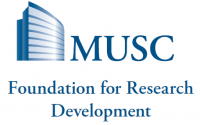MUSC study offers new treatment to veterans with chronic pain
March 21, 2016Clinical research study testing combination of non-medication therapies
United States military veterans, who have been struggling with chronic back pain, are invited to participate in a study testing a new therapy for increased pain relief.
With thousands of veterans and personnel sustaining injuries during the Iraq and Afghanistan conflicts, opioid prescription use is at an all-time high as these patients struggle to manage their chronic back pain. The study, led by Jeffrey Borckardt, Ph.D., MUSC Department of Psychiatry and Behavioral Sciences professor, offers a potential treatment path that looks to minimize the need to take medication to manage chronic pain. While opioids can help manage acute pain well, they are not ideal for long-term pain management.
The study is looking for veterans, ages 18-70 years old. Participants in the study will receive 11 therapy sessions and three follow-up visits. The study treatment combines cognitive behavioral therapy (CBT) with transcranial direct current stimulation (tDCS) in an effort to increase pain relief for those suffering from chronic back pain. Cognitive behavioral therapy is a form of talk therapy aimed at identifying and changing negative thoughts and unhelpful behaviors. Numerous studies have already shown that CBT helps people better manage chronic back pain.
Transcranial direct current stimulation is a safe, non-invasive form of neurotherapy whereby a small, targeted and controlled electrical current is pulsed into the brain. Studies have demonstrated that tDCS can help reduce pain and may also increase the benefits known to result from CBT. Researchers think that by combining CBT and tDCS, even greater pain relief may be achieved for chronic back pain sufferers than when administered as stand-alone treatments.
For more information about the study, including compensation, call (843) 792-0291 or email [email protected].
About MUSC
Founded in 1824 in Charleston, The Medical University of South Carolina is the oldest medical school in the South. Today, MUSC continues the tradition of excellence in education, research, and patient care. MUSC educates and trains more than 3,000 students and residents, and has nearly 13,000 employees, including approximately 1,500 faculty members. As the largest non-federal employer in Charleston, the university and its affiliates have collective annual budgets in excess of $2.2 billion. MUSC operates a 750-bed medical center, which includes a nationally recognized Children’s Hospital, the Ashley River Tower (cardiovascular, digestive disease, and surgical oncology), Hollings Cancer Center (a National Cancer Institute designated center) Level I Trauma Center, and Institute of Psychiatry. For more information on academic information or clinical services, visit musc.edu. For more information on hospital patient services, visit muschealth.org.














